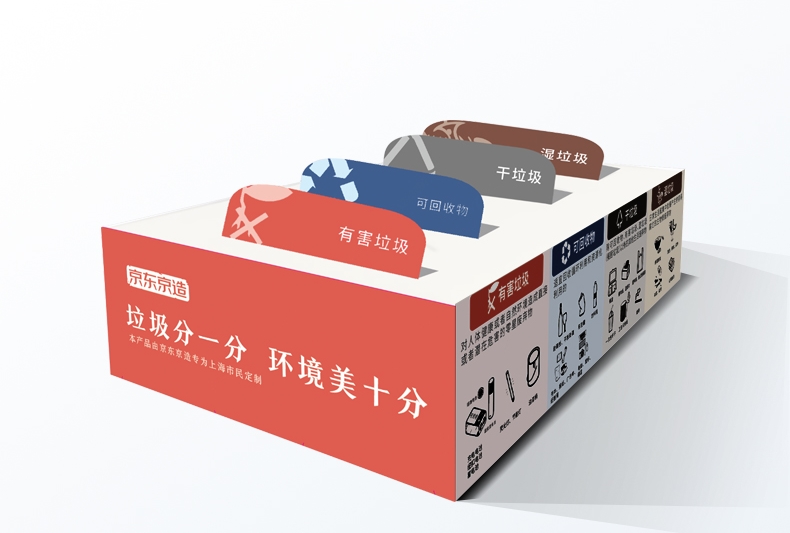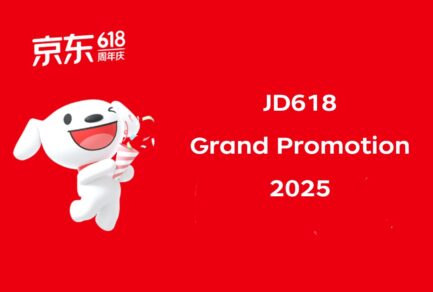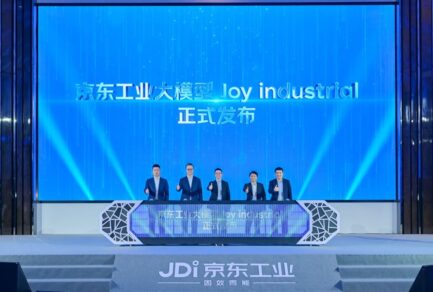Jul 25, 2019|
Trash Sorting: it’s a Piece of Cake with JD AI
Consumers all around the world increasingly care about their carbon footprint and are looking for ways to reduce the impact their daily activities have on their environment. Most recently, China rolled out a slate of new recycling requirements to enable consumers and businesses to more accurately sort their trash and recycle properly. The new regulations require the sorting of trash into four categories – dry waste, wet waste (kitchen waste), recyclables and hazardous waste.
The issue? While highly welcomed by consumers and businesses, the regulation has also resulted in some confusion about how to classify different types of discarded items. “Is dried fruit wet or dry waste?” “How about wet napkins?” Luckily, JD AI has come to the rescue, providing not only a consumer solution to make recycling easier but also an open API enabling partners to develop trash sorting solutions outside of the JD retail ecosystem.
Consumers have a few options for how to get consultation about trash sorting. First, they can simply take a photo of the type of waste they have and will be instructed on how to dispose of it properly. This offering is based on JD’s signature SnapShop 24/7 shopping consultant, where users take photos of items they want to buy and then receive recommendations of where to buy the same product or a related product via JD’s e-commerce platform. Importantly, the SnapShop-inspired waste sorting function will be made available as an API via JD’s open AI platform, NeuHub, so that companies can easily implement the technology in their own businesses.
Alternatively, consumers can simply speak to their JD smart speaker (京鱼座) to activate a function in which they describe the waste they wish to discard, and the speaker analyzes the request and provides the appropriate recommendation. The offering leverages JD’s advanced natural language capabilities. Similar capabilities have been implemented throughout JD’s entire customer service apparatus in order to provide a natural, engaged and effective response to simple customer queries, freeing up JD’s human customer service staff to handle more complicated queries.
“This is one example of how we are using technology to make our customers’ lives easier, create business opportunities for ourselves and open our technology up to others,” said Bowen Zhou, President of JD AI. “It’s also another example of our sustainable innovation.”
 JD has also responded to the new waste disposal policy by introducing a special waste sorting product for its Shanghai consumers. According to JD data, Shanghai customers searched for “waste sorting bags” almost 800 times more frequently during this year’s 6.18 sales period than last year’s. In addition, sales of waste sorting bags by Shanghai-based consumers on JD from June 21-30 increased nearly 10 times compared with the same period in May, and nearly 70 times higher than June 21-30 last year. Manufactured by JD’s in-house consumer brand “J.Zao,” the package of waste sorting bags provides enough bags to last the average white-collar worker a month, and the design of the bags is customized for the type of waste they contain – for example, bags for wet waste are significantly thicker. Further, JD has optimized the number of each type of bag based on the frequency of users discarding particular categories of waste. There are 22 bags each for “wet” and “dry” waste, but only 10 for “harmful” and “recyclable” waste.
JD has also responded to the new waste disposal policy by introducing a special waste sorting product for its Shanghai consumers. According to JD data, Shanghai customers searched for “waste sorting bags” almost 800 times more frequently during this year’s 6.18 sales period than last year’s. In addition, sales of waste sorting bags by Shanghai-based consumers on JD from June 21-30 increased nearly 10 times compared with the same period in May, and nearly 70 times higher than June 21-30 last year. Manufactured by JD’s in-house consumer brand “J.Zao,” the package of waste sorting bags provides enough bags to last the average white-collar worker a month, and the design of the bags is customized for the type of waste they contain – for example, bags for wet waste are significantly thicker. Further, JD has optimized the number of each type of bag based on the frequency of users discarding particular categories of waste. There are 22 bags each for “wet” and “dry” waste, but only 10 for “harmful” and “recyclable” waste.
JD’s enterprise procurement channel, JD Business, is providing supplies on its platform (b.jd.com) and leveraging its logistics capabilities to help local companies comply with the new recycling policies. JD is helping to provide trash bins as well as customized labels and tags to companies of all sizes, thus streamlining the compliance process. Shanghai’s CR Land Construction Group, for example, has already enlisted JD to build a custom procurement platform for its waste management operations. So far JD’s waste sorting solutions have been applied across 66 of CR Land’s construction sites across the city.
“JD has been extremely proactive about helping companies like ours comply with the new regulations,” said Fengquan Xie, Project Manager of CR Property Technology Services, Shanghai. “From using data regarding building layout and density of residents, as well as opinions from local people and homeowners’ committees to optimize the implementation of new trash sorting solutions, we’ve been impressed by the measures JD has taken, and are proud to work with them.”

 Why Logistics Scenarios Matter for the Future of Industrial IoT
Why Logistics Scenarios Matter for the Future of Industrial IoT



